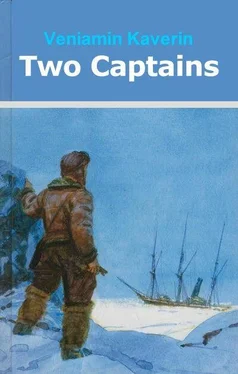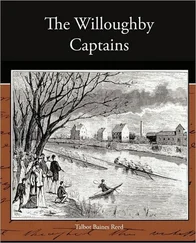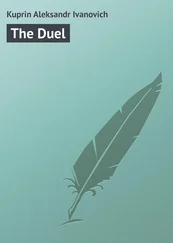To describe a writer's work in all its diversity is no light task. I may get nearest to doing this by simply answering the numerous letters I have received in connection with my novel Two Captains and thus telling the story of how this one novel at least came to be written.
The questions my correspondents ask chiefly concern the two heroes of my novel-Sanya Grigoriev and Captain Tatarinov. Many of them ask whether it was my own life that I described in Two Captains. Some want to know whether the story of Captain Tatarinov was invented by me. Others search for the name in books of geography and encyclopaedias and are surprised to find that the activities of Captain Tatarinov have left no visible traces in the history of Arctic exploration. Some want to know where Sanya Grigoriev and Katya Tatarinova are living at present and what rank Sanya was promoted to after the war. Others ask the author's advice as to what job they should devote their lives. The mother of a boy, known as the terror of the town, whose pranks often verged on hooliganism, wrote me that after reading my novel her son had become a different person, and shortly afterwards I received a letter from Alexander Rokotov himself which showed that the boy was intelligent and talented as well as mischievous. Some years have passed since then, and student Rokotov of the Aviation Institute has acquired expert knowledge in aircraft construction.
It took me about five years to write this novel. When the first book was finished the war started, and it was not until 1944 that I returned to my work. The idea of writing this novel originated in 1937, after I had met a man whom I have portrayed in Two Captains under the name of Sanya Grigoriev. This man told me the story of his life-a life filled with hard work, self-dedication and love of his country. I made it a rule from the very first page not to invent anything, or hardly anything. In fact, even such a curious detail as the muteness of little Sanya has not been invented by me. His mother and father, his sister and friends have been described exactly as they first appeared to me in the narrative of my chance acquaintance, who afterwards became my friend. Of some of the personages of my future book I learned from him very little. Korablev, for example, was sketchily described in his narrative as a man with a quick searching eye, which invariably made the schoolchildren speak the truth; other characteristics were a moustache and a walking stick and a habit of sitting over a book late into the night. This outline had to be filled in by the author's imagination in order to create a character study of a Soviet schoolteacher.
The story, as told to me, was really a very simple one. It was the story of a boy who had had a cheerless childhood and was brought up by Soviet society, by people who had taken the place of his dead parents and had sustained in him the dream he had cherished in his ardent and honest heart since early childhood.
Nearly all the circumstances of this boy's life, and later of his youth and manhood, have been retained in the novel. His childhood years, however, were spent on the Volga and his school years in Tashkent-places with which I am not very familiar. I have therefore transferred the early scene of my book to my own hometown, which I have named Ensk. No wonder my fellow townsmen have so easily deciphered the town's real name. My school years (the senior forms) were spent in Moscow, and I have been able to describe in my book a Moscow school of the early twenties with greater authenticity than I could have achieved with a Tashkent school.
I might mention another question which my correspondents ask me, namely, to what extent the novel Two Captains is autobiographical. To a considerable extent everything, from the first to the last page, that Sanya Grigoriev has seen has been seen by the author with his own eyes. Our two lives ran parallel, so to speak. But when Sanya Grigoriev's profession came into the book I had to drop the "personal" material and make a study of the life of pilots, of which I had known very little until then.
Invaluable assistance in studying aeronautics was given me by Senior Lieutenant S. Y. Klebanov, who died the death of a hero in 1943. He was a talented pilot, a brave officer and a fine, upright man. I was proud of his friendship. During my work on the second volume I came across (among the materials of the War Study Commission) testimonials of Klebanov's brother-officers showing that my high opinion of him was shared by his comrades.
It is difficult, well nigh impossible, to give any complete answer to the question of how one or another character of a literary work is created, especially if the narrative is in the first person. Apart from those observations, reminiscences, and impressions which I have mentioned, my book contains thousands of others which had no direct bearings on the story as told to me and which served as the groundwork for Two Captains. Imagination, as everyone knows, plays a tremendous role in a writer's work. And it is on this that one must speak before passing to the story of my second principal character Captain Tatarinov.
Don't look for his name in encyclopaedias or handbooks. Don't try to prove, as one pupil did at a geography lesson, that it was Tatarinov and not Vilkitsky who discovered Novaya Zemlya. For the older of my two captains I used the story of two brave explorers of the Arctic. One of them supplied me with the courageous character of a man pure in thought and clear in aim-qualities that bespeak a noble soul. This was Sedan. From the other I took the actual story of his voyage. This was Brusilov. The drift of my St. Maria repeats exactly the drift of Brusilov's St. Anne. The diaries of Navigating Officer Klimov quoted in my novel are based on the diary of Albanov, Navigating Officer of the St. Anne, one of the two surviving members of that tragic expedition. The historical material alone, however, did not seem enough to me. I knew that there lived in Leningrad a painter and writer by the name of Nikolai Pinegin, a friend of Sedov's and one of those who had brought his schooner the St. Phocas back to the mainland after the death of Sedov. We met, and Pinegin not only told me a lot more about Sedov and gave me a vivid picture of the man, but explained the tragedy of his life, the life of a great explorer slandered and refused recognition by reactionary circles of society in tsarist Russia. Incidentally, during one of my meetings with Pinegin the latter treated me to some tinned food which he had picked up at Cape Flora in 1914, and to my amazement I found it excellent. I mention this trivial detail because it is characteristic of Pinegin and of the range of interests into which I was drawn during my visits to this "Arctic home".
Later, when the first volume had already appeared, Sedov's widow gave me a lot of interesting information. The summer of 1941 found me working hard on the second volume, in which I intended to make wide use of the story of the famous airman Levanevsky. My plan was thought out, the materials were studied and the first chapters written. V. Y. Vize, the well-known scientist and Arctic explorer, approved the contents of the future "Arctic" chapters and told me many interesting things about the work of search parties. But the war broke out and I had to dismiss for a long time the very idea of finishing the novel. I wrote front-line reportage, war sketches and short stories. However, the hope of being able to take up the novel again apparently did not leave me, otherwise I would not have found myself asking the editor of Izvestia to send me to the Northern Front. It was there, among the airmen and submarines of the Northern Fleet that I realised that the characters of my book would appear blurred and sketchy if I did not describe how, together with all the Soviet people, they had borne the dreadful ordeals of the war and won it.
Читать дальше












